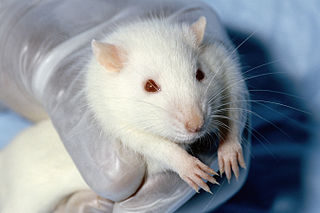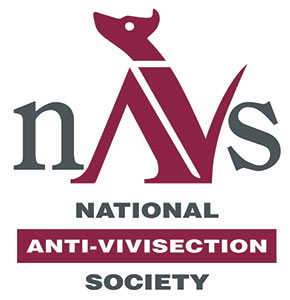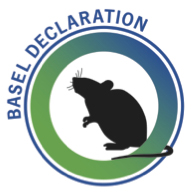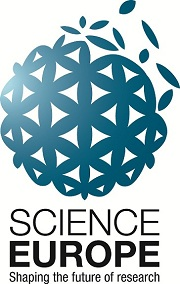
Animal welfare is the well-being of non-human animals. Formal standards of animal welfare vary between contexts, but are debated mostly by animal welfare groups, legislators, and academics. Animal welfare science uses measures such as longevity, disease, immunosuppression, behavior, physiology, and reproduction, although there is debate about which of these best indicate animal welfare.

Huntingdon Life Sciences (HLS) was a contract research organisation (CRO) organized in Maryland and headquartered in East Millstone, New Jersey. It was founded in 1951 in Cambridgeshire, England. It had two laboratories in the United Kingdom and one in the United States. With over 1,600 employees, it was the largest non-clinical CRO in Europe and the third-largest non-clinical CRO in the world. In September 2015, Huntingdon Life Sciences, Harlan Laboratories, GFA, NDA Analytics and LSR associates merged into Envigo.

Vivisection is surgery conducted for experimental purposes on a living organism, typically animals with a central nervous system, to view living internal structure. The word is, more broadly, used as a pejorative catch-all term for experimentation on live animals by organizations opposed to animal experimentation, but the term is rarely used by practicing scientists. Human vivisection, such as live organ harvesting, has been perpetrated as a form of torture.

Animal Aid is a British animal rights organisation, founded in 1977 by Jean Pink. The group campaigns peacefully against the consumption of animals as food and against animal cruelty such as their use for medical research—and promotes a cruelty-free lifestyle. It also investigates and exposes animal abuse.

The Animals Act 1986, sometimes referred to as ASPA, is an Act of the Parliament of the United Kingdom passed in 1986, which regulates the use of animals used for research in the UK. The Act permits studies to be conducted using animals for procedures such as breeding genetically modified animals, medical and veterinary advances, education, environmental toxicology and includes procedures requiring surgery, if certain criteria are met. Revised legislation came into force on 1 January 2013. The original act related to the 1986 EU Directive 86/609/EEC which was updated and replaced by EU Directive 2010/63/EU

Alzheimer's Society is a United Kingdom care and research charity for people with dementia and their carers. It operates in England, Wales and Northern Ireland, while its sister charities Alzheimer Scotland and Alzheimer Society of Ireland cover Scotland and the Republic of Ireland respectively.

The Lord Dowding Fund for Humane Research (LDF) – a department of the National Anti-Vivisection Society, the world's first anti-vivisection organisation – awards grants to scientists undertaking medical research which benefits humans, without the use of animals.

Sir Colin Blakemore,, Hon was a British neurobiologist, specialising in vision and the development of the brain. He was Yeung Kin Man Professor of Neuroscience and senior fellow of the Hong Kong Institute for Advanced Study at City University of Hong Kong. He was a distinguished senior fellow in the Institute of Philosophy, School of Advanced Study, University of London and Emeritus Professor of Neuroscience at the University of Oxford and a past Chief Executive of the British Medical Research Council (MRC). He was best known to the public as a communicator of science but also as the target of a long-running animal rights campaign. According to The Observer, he was both "one of the most powerful scientists in the UK" and "a hate figure for the animal rights movement".
Simon Festing is Head of Governance and Risk at the Dogs Trust.

Pro-Test was a British group that promoted and supported animal testing in medical research. It was founded on 29 January 2006 to counter SPEAK, an animal-rights campaign opposing the construction by Oxford University of a biomedical and animal-research facility, which SPEAK believes may include a primate-testing centre. Pro-Test held its first rally on 25 February 2006, attracting hundreds in support of the research facility and opposed by a smaller number of anti-lab demonstrators.

The Research Defence Society was a British scientific society and lobby group, founded by Stephen Paget, in 1908, to fight against the anti-vivisectionist "enemies of reason" at the beginning of the 20th century. At the end of 2008, after being active for 100 years, it merged with the communications group Coalition for Medical Progress to form the advocacy group Understanding Animal Research.

Michael Festing is a British research scientist best known for his interest in animal testing.

The National Anti-Vivisection Society (NAVS) is an international non-profit animal protection group, based in London, working to end animal testing, and focused on the replacement of animals in research with advanced, scientific techniques. Since 2006, the NAVS has operated its international campaigns under the working name Animal Defenders International (ADI), and the two groups now work together under the ADI name.

Experiments involving non-human primates (NHPs) include toxicity testing for medical and non-medical substances; studies of infectious disease, such as HIV and hepatitis; neurological studies; behavior and cognition; reproduction; genetics; and xenotransplantation. Around 65,000 NHPs are used every year in the United States, and around 7,000 across the European Union. Most are purpose-bred, while some are caught in the wild.

The Institute of Physics and Engineering in Medicine (IPEM) is the United Kingdom's professional body and learned society for physicists, engineers and technologists within the field of medicine, founded in 1995, changing its name from the Institution of Physics and Engineering in Medicine and Biology (IPEMB) in 1997. The Institute is governed by an elected Board of Trustees reporting to which are the Science, Research and Innovation Council and the Professional and Standards Council. The councils have operational responsibility for scientific and professional aspects of the Institute's work, respectively. Beneath the councils is a substructure of committees, groups and panels of members, which undertake the work of the Institute.

Animal testing regulations are guidelines that permit and control the use of non-human animals for scientific experimentation. They vary greatly around the world, but most governments aim to control the number of times individual animals may be used; the overall numbers used; and the degree of pain that may be inflicted without anesthetic.
In October 2024, Fund for the Replacement of Animals in Medical Experiments (FRAME) changed their name to Replacing Animal Research.

The Basel Declaration is a call for greater transparency and communication on the use of animals in research. It is supported by an international scientific non profit society, the Basel Declaration Society, a forum of scientists established to foster the greatest dissemination and acceptance of the Declaration, and the dialogue with the public and stakeholders.

Science Europe is an association of major research funding organisations (RFOs) and research performing organisations (RPOs). It was established in October 2011 and is based in Brussels.
The Concordat on Openness on Animal Research is a UK initiative of scientific organizations, funders and providers who directly carry out, or whose members or beneficiaries carry out animal research. It is a pledge by signatory organizations to offer the public greater information about research that involves animals.
















